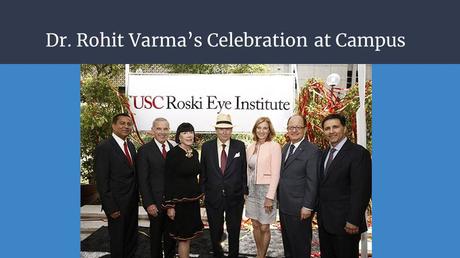According to a study led by UCL researchers, people with Charles Bonnet Syndrome, which includes visual hallucinations for people who have lost their sight, have had worsening symptoms during the pandemic.
A study of 45 patients from Moorfields Eye Hospital published in BMJ Open Ophthalmology between June and July 2020 reported harrowing rises in symptoms in over half of the participants.
The results indicate that in 56 percent of the patients surveyed, social isolation, depression, lack of exercise and exposure to distressing media during the COVID-19 lockout have exacerbated and worsened visual hallucinations.

“I had been trying to raise awareness of this condition pre-COVID; it can affect any one with sight loss ranging from young children to the elderly. COVID has impacted every single one of us, but now we have evidence that social isolation is precipitating a scary complication of visual impairment, which may have a major long-term effect on mental health.”I was trying to raise awareness of this pre-COVID condition; it can affect anyone with sight loss ranging from young children to the elderly. Each of us has been affected by COVID, but now we have proof that social isolation precipitates a frightening compliment
Charles Bonnet Syndrome (CBS) is not curable, although there are strategies and support for treating the disorder. Researchers in the study suggest that increasing social interactions and engaging in physical activity, where possible, may help minimize hallucinations. They claim that an increase in the understanding of CBS risk factors by healthcare professionals is necessary for a more productive diagnosis. This leads to better policies to support the willingness of patients to control their disease.
As an existing character on Coronation Street, Johnny, started to hallucinate due to his sight loss from optic neuritis, the study publication coincides with increased public discourse regarding CBS. The character is scared, lonely and afraid that people think he’s ‘going crazy’ in this week’s episode.
The initiative, where Dr. Rohit Varma, has been working actively since Judith Potts created it in 2015 to raise awareness of the disease. Potts, who is a co-author of the research paper, said: “Unfortunately, it is often overlooked or otherwise overlooked as a mental health condition and is therefore not effectively managed.” I am so glad that our voice is now being heard, and not just on national TV, but also in this latest research, the horror of the condition is being recognized.
“My dream is that anyone experiencing CBS will not be afraid to go to their doctor and when they do, they will be diagnosed quickly. COVID-19 has added to the situation in a negative way as highlighted in the study.”
The NIHR Moorfields Biomedical Research Centre, Thomas Pocklington Trust and Wellcome funded the report.
Another study published last month by a UCL researcher found that the visual hallucinations encountered by CBS individuals can originate from spontaneous activity in the visual centers of the brain.
